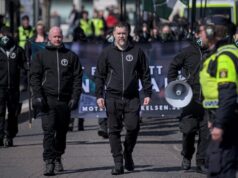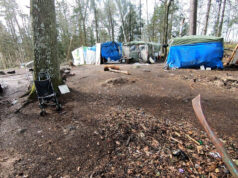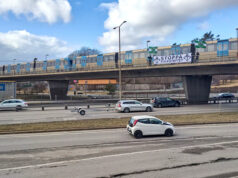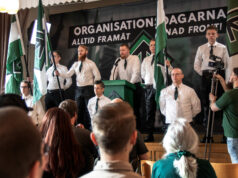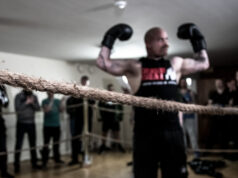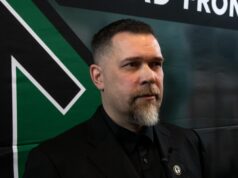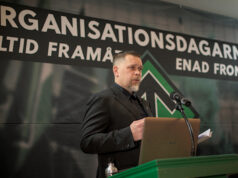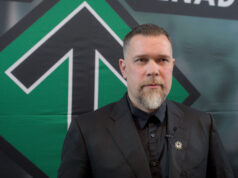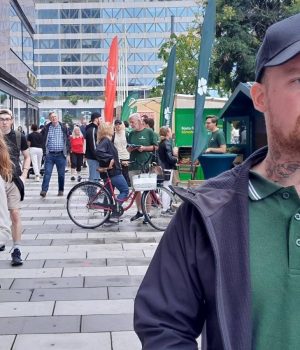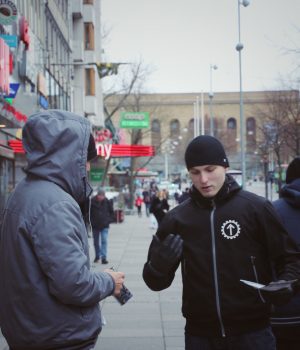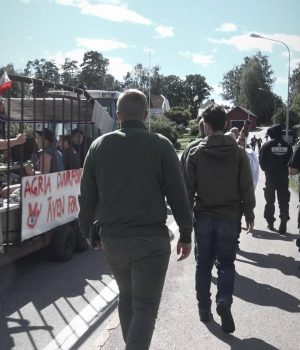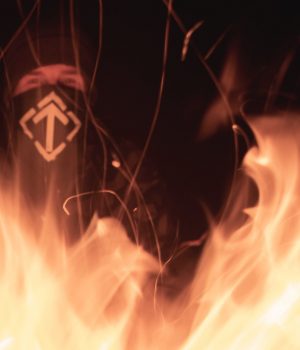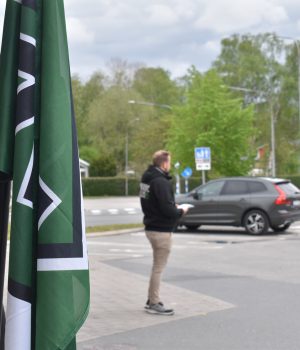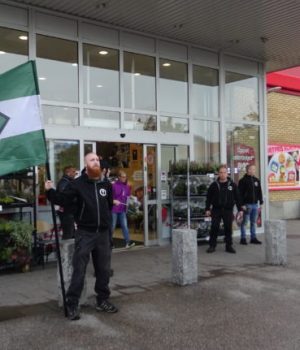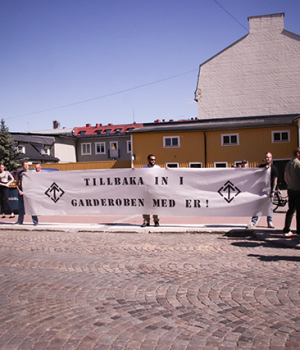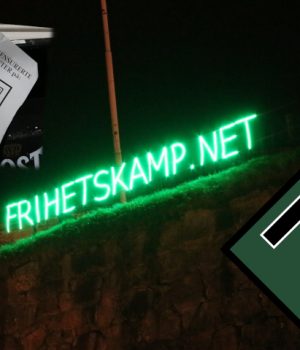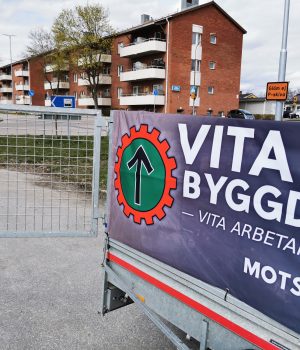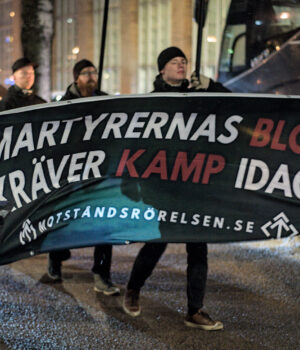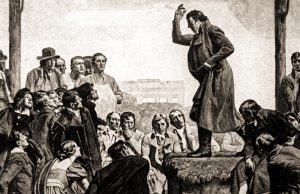IDEOLOGY. Martin Saxlind shares his thoughts on the concept of political soldiers.
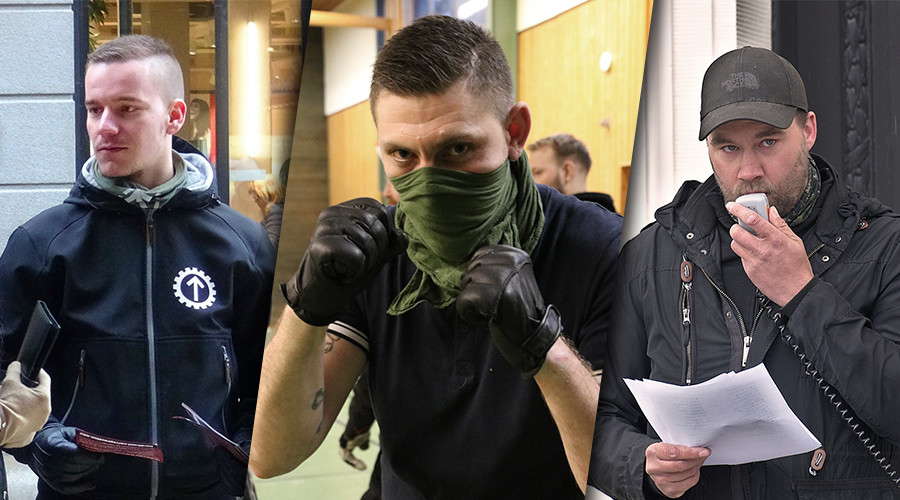
A few years ago I read Derek Holland’s book ”The Political Soldier”. I remember that I didn’t quite think the book lived up to its good reputation, and I have a vague memory of there being an exaggerated focus on spirituality and Christianity that didn’t sit well with me. The term ”political soldier” in itself – said to have first been used by Joseph Goebbels – is a term that I like very much, however. And it’s a concept that I’m going to discuss in this article.
Fanaticism
The way I see it, a political soldier is both fanatical and rational. The fanaticism stems from a strong idealism and a moral conviction that what we’re fighting for is right. This fanaticism partly derives from the purely subjective idea that OUR people suffer very badly from multiculturalism and that it’s not in OUR INTERESTS to be replaced and pushed aside by other racial groups. But in my view there is also an objective component in the sense that our people actually are objectively superior and more valuable than other racial groups, and that the world would become an uglier, more uninteresting and generally worse place if the white race were to become extinct.
We are under attack on several different fronts, and we must defend ourselves. The survival of our people and the future of the entire world is at stake.
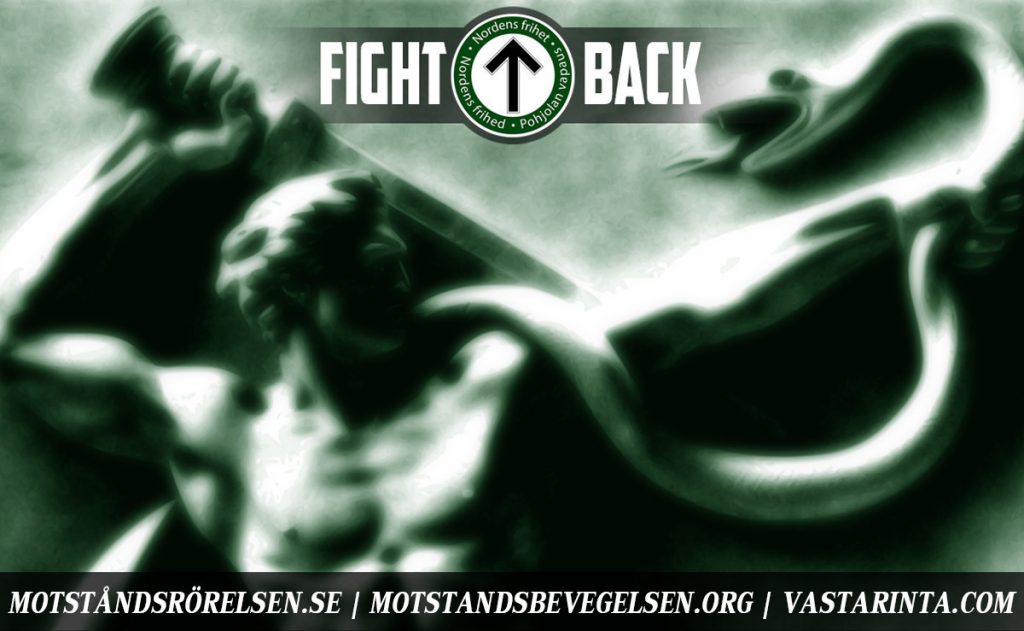
No matter the odds or the personal risks that have to be taken, it’s always our duty to fight fanatically for victory and survival; and those who do their duty fully earn a renown that more half-hearted followers cannot lay claim to. At the same time, idealism and a spirit of self-sacrifice are things you can cultivate by means of training, just like a muscle in your body. Nobody is born a consummate political soldier. But when you join the struggle, have the right attitude and successively accept more and more responsibility in conjunction with your growing competence, you can get closer to the ideal we strive for.
A political soldier is thus a fanatic that takes the struggle very seriously and always does what needs to be done. However, this doesn’t require that the political soldier be a misanthrope who hates life and suffers from a lack of humour. We are fighting FOR our people and a society in harmony with the natural laws, not necessarily AGAINST any other people or with hatred in mind.
Rationalism
Neither should fanaticism lead to a one-track mind that makes you incapable of understanding how other people think or re-examining your own ideas if they turn out to be ineffective. A political soldier always has a rational attitude and attempts to find the best way forward to achieve our political goals.
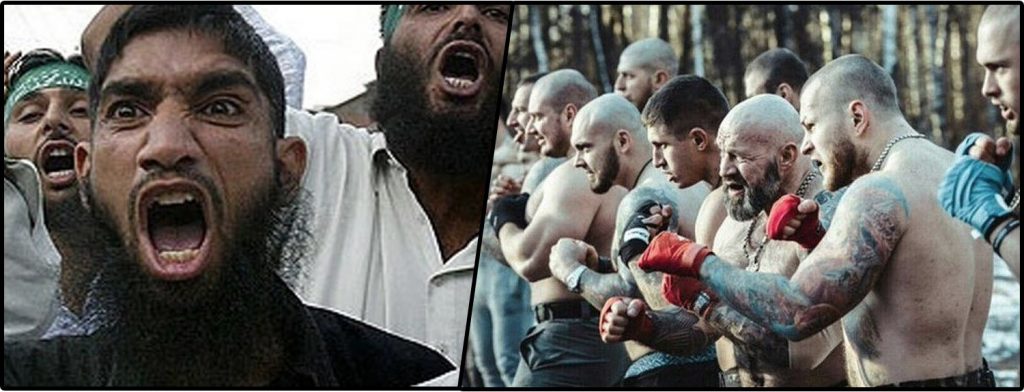
Just being a fanatic is therefore not enough for us nationalists. Here we can take Muslims and hooligans as two examples. Muslim fanatics are most interested in going to paradise and believe that one way of reaching their destination is by blowing themselves up. Hooligans can in turn be described as fanatical enthusiasts of violence. Being ready to sacrifice one’s own life (like an Islamist) or enjoy violence (like a hooligan) doesn’t necessarily have to be wrong and can be USEFUL in certain situations, but there always has to be a rational thought behind one’s actions. The means must not become the end. Fanaticism has to serve a higher purpose – a good purpose.
The political soldier must thus act intelligently and with a long-term perspective based on a correct analysis of the present political situation.
Neither politicians nor soldiers
Being a political soldier does not mean that you’re a politician or a soldier. A political soldier does not copy the mercantile dishonesty and superficiality of the liberal democratic political class. The political soldier is an honest and genuine person who is reluctantly involved in politics because it’s necessary.
Neither is the political soldier a person who lives the same life and has the same exercise regimen as a professional soldier, because the political struggle of today is not a military conflict and doesn’t look like it’s going to become one in the foreseeable future. However, the political soldier works out regularly to be able to defend himself and his comrades, in addition to it being healthy and building character. Living a Spartan lifestyle is also practical and often ends up being the consequence of all the time and money spent by the political soldier on his political engagement.
Since political soldiers are fanatics and take the struggle very seriously, there is a danger that they might act rashly and irrationally, and that they could slide too much into the role of a soldier, even though a conventional war is not ongoing. That’s why it might be good to stop for a moment and reflect a little on why the struggle right now is political and why sporadic acts of violence aren’t beneficial.
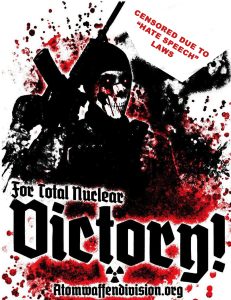
To start with, there’s a reprehensible moral aspect involved with the kind of terrorism practiced by Muslims, since it harms random innocent people. But even if it’s possible to do something that only harms people who deserve it, it’s still a ”negative” action that doesn’t change anything in the broader scheme of things. For example, if you could push a button and make every person in the Swedish government fall down dead, it still wouldn’t change the policies they pursue because they’re maintained by a large complex of powerful institutions, and the politicians would rapidly be replaced by new ones pursuing the same policies. What is needed first of all in order to bring about a fundamental political change in society is that we nationalists perform POSITIVE ACTIONS that increase our power. Unless our power and organizational skills grow stronger, it doesn’t matter what else is happening.
To make it clear, I’m not saying that political violence is always morally wrong, but in the present situation it almost always is wrong in a tactical sense (and it’s morally wrong to deliberately make tactical mistakes!). The only violence that I can see a tactical need for today is violence for the purpose of self-defense against left-wing extremists who terrorize nationalists. So long as left-wing terrorism exists, counter-terrorism will be necessary and must be performed by others when the state fails to do it.
But engaging in terrorism or paramilitary organizing would be a mistake for us nationalists. Partly because it’s starting in the wrong place, since we have a lot of constructive work left to do in building up our own power before we can challenge the system in that way, and partly because it provides the system with a clear pretext to clamp down on and ban nationalist organizations.
Those who are convinced that the future struggle will take this route should content themselves with getting prepared mentally and physically. Because as soon as you cross the legal line and prepare yourself organizationally and materially, you will be stuck in an underground project that will nullify the opportunity to do everything else that needs to be done more openly.
Thus the question of regaining Germany’s power is not the following: How do we manufacture arms? but rather: How do we create the spirit making the people able to bear arms? If this spirit governs a people, the will is going to find a thousand ways, each one involving arms! However, you might give ten pistols to a coward and he still won’t be able to fire a single shot if he’s attacked. They are more worthless to him than a regular cudgel for the brave man.
– Adolf Hitler
Three archetypes
There are basically three different types of political soldiers, with somewhat varying characteristics and roles in the struggle.
The leader:
– Has excellent organizational skills and makes things happen
– Is good at handling people
– Has a large number of contacts and is influential
– Is often helpful and gives a helping hand in raising new political soldiers
– Often has a managerial position and is public-facing
The specialist:
– Possesses politically useful expertise in fields such as ideology, propaganda, law, economy, research, IT, graphic design, etc.
– Often works very hard behind the scenes
– Produces a lot of ideas
– Shares specialist skills
The activist:
– Works out a lot
– Takes the struggle to the streets
– Represents the movement in his local area
Because political soldiers are unfortunately relatively rare, and since the need for them is great, many people are often forced to dabble in a bit of everything of the above instead of sticking to one of these roles. Individuals having too much work to do is one of the main reasons why people get burned out and why the nationalist movement often has a high turnover of leaders, specialists and activists. The solution is for more people to lend a hand and accept assignments requiring responsibility. This will create a more durable work burden for everyone, and key people will be able to focus on certain assignments properly instead of having to do many things by halves.
Self-improvement
A political soldier is always striving to evolve himself and his skills. By strengthening himself, he is simultaneously strengthening the movement.
No matter how the overall political struggle goes or what strategies and methods are used (and what the individual activist thinks about them), a political soldier can always advance the struggle little by little by taking on individual responsibility and working on himself.
The political soldier practices weight training and martial arts, he reads in order to expand his ideological knowledge, and he studies and practices in order to learn new skills necessary in the struggle. Through his employment he can also supply the movement with money. Finally, the political soldier has a large number of contacts, partially to gather information and partially to recruit new activists. Being dissatisfied with society is not an excuse for passivity and waiting for society to implode!
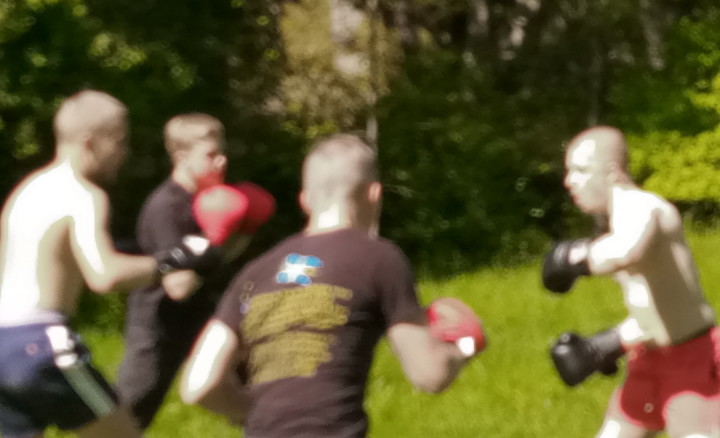
In order to evolve, the political soldier must be humble. Nobody’s perfect, and there’s always an evolutionary potential within you. That’s why the political soldier first and foremost focuses on himself instead of wasting his time judging fellow comrades for their flaws.
Because the political soldier evolves over time into a strong, hardened man through his rational fanaticism, there’s a risk that he’ll develop a dislike for regular people and look down on them. This is a problem, as it alienates the activist from the people he’s struggling for. Another danger is that the strong personality of the political soldier will clash with other personalities in the movement, giving rise to unnecessary conflicts based on ego. That’s why it’s important to maintain one’s humility and act in a fraternal way towards one’s comrades, rather than in a distrustful or resentful manner.
There’s also the risk that an excessive focus on self-improvement can be linked more to narcissism and egoism than a political commitment. The political use of an already strong person being able to bench-press an extra five kilos is basically non-existent. Working out is healthy and it’s a good hobby, but beyond a certain level it becomes excessive and gives diminishing returns from a strictly political perspective. The same goes for a person who trains in martial arts seven days a week but never takes the struggle to the streets. Working out is good for you, but it’s of no use to the struggle. A political soldier doesn’t just apply himself to working out and boastful posing. He uses his skills actively where they are needed!
Unity means strength
Regular soldiers are organized in an army and must conform to a hierarchy and be good team players. The same is true for political soldiers, who understand that more can be achieved by being organized with others than by being a lone wolf. Unity means strength, since resources and skills can be shared within the organization and be utilized where they will be of maximum political use.
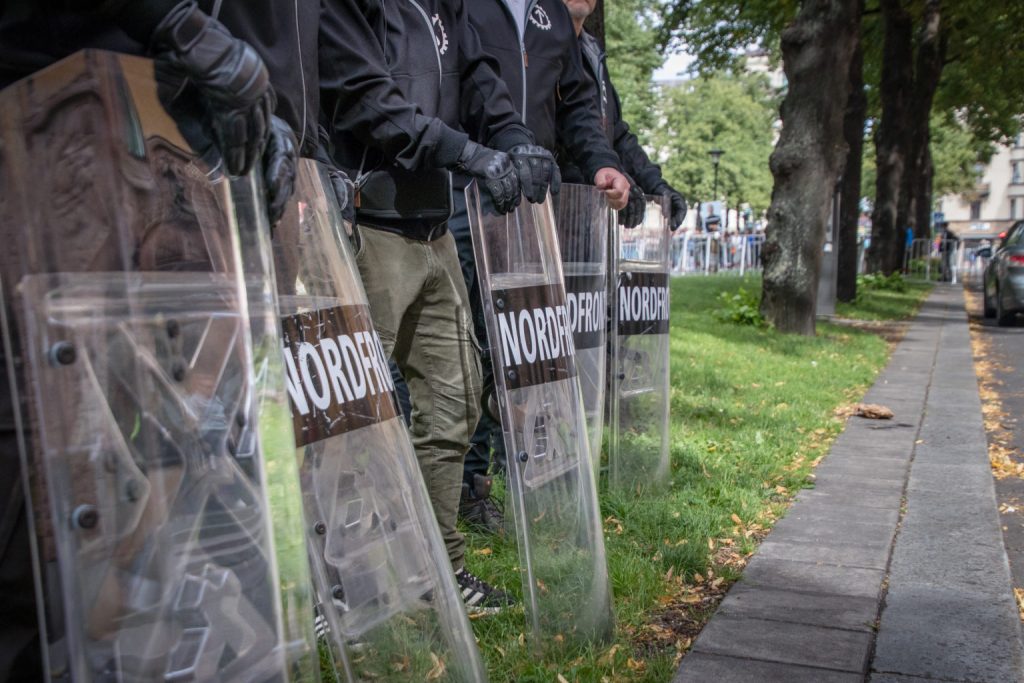
Unity exists chiefly within the organization itself, but it can also co-exist with allies and groups working toward more or less the same political goals on their own. The political battle is being fought by many various organizations and actors, and no single organization alone can fill all the functions necessary today (or that might be necessary in the future). However, it’s irrational to have competing organizations engaged in the same type of activity. A wide-ranging revolutionary movement is supposed to create political unity against the system it’s fighting, not get entangled in internal ”competition” based on some liberal belief that the ”free market of politics” will magically solve our problems if everyone acts in an anarchic and uncoordinated manner. Here the nationalist movement in Sweden has failed in recent years, and it has cost us all dearly.
As an organized individual, the political soldier understands that he sometimes has to compromise. You can’t always get what you want in an organization, and you don’t have to like every single person within it. If you’re displeased about something, you work to solve one problem at a time from a long-term perspective. You can’t solve everything that needs to be done in one fell swoop. As such, the political soldier doesn’t just voice criticism – he also takes on the responsibility to solve a problem he has identified, whenever possible.
Taking on individual responsibility, even for more burdensome and tedious tasks, is important and becomes the duty of the political soldiers. A strong movement is built on a large number of competent individuals (the political soldiers) organizing themselves and everything else to advance the struggle. A strong movement doesn’t just spontaneously appear via a lot of people randomly doing whatever they feel like or just telling others what they should do.
As an organized person – either in a formal organization or more loosely as part of a broader movement – the political soldier acts in a friendly way towards his comrades. In addition to standing in solidarity with those who fall victim to the system’s repression, this can also entail sharing his skills. Due to his experience, the political soldier has a lot of skills to share and can therefore help to create new political soldiers, which is a very important task. The political soldier thus always tries to surround himself with ambitious and talented comrades who he can either teach or learn things from himself.
The process of creating a new political soldier often takes a lot of time and demands that the person be organized and politically active long enough to build up and assimilate a great deal of experience. Excessive membership turnover with hasty and premature defections is problematic, since political maturity is not achieved in such cases. The political soldier works from a long-term perspective and feels a debt of gratitude to the organization that has formed him.
A movement filled with political soldiers fanatically pushing forwards and rationally leading the way will advance and achieve victory. It’s up to those of you reading this to become one of these soldiers in the people’s political army! The future is still in our hands.


